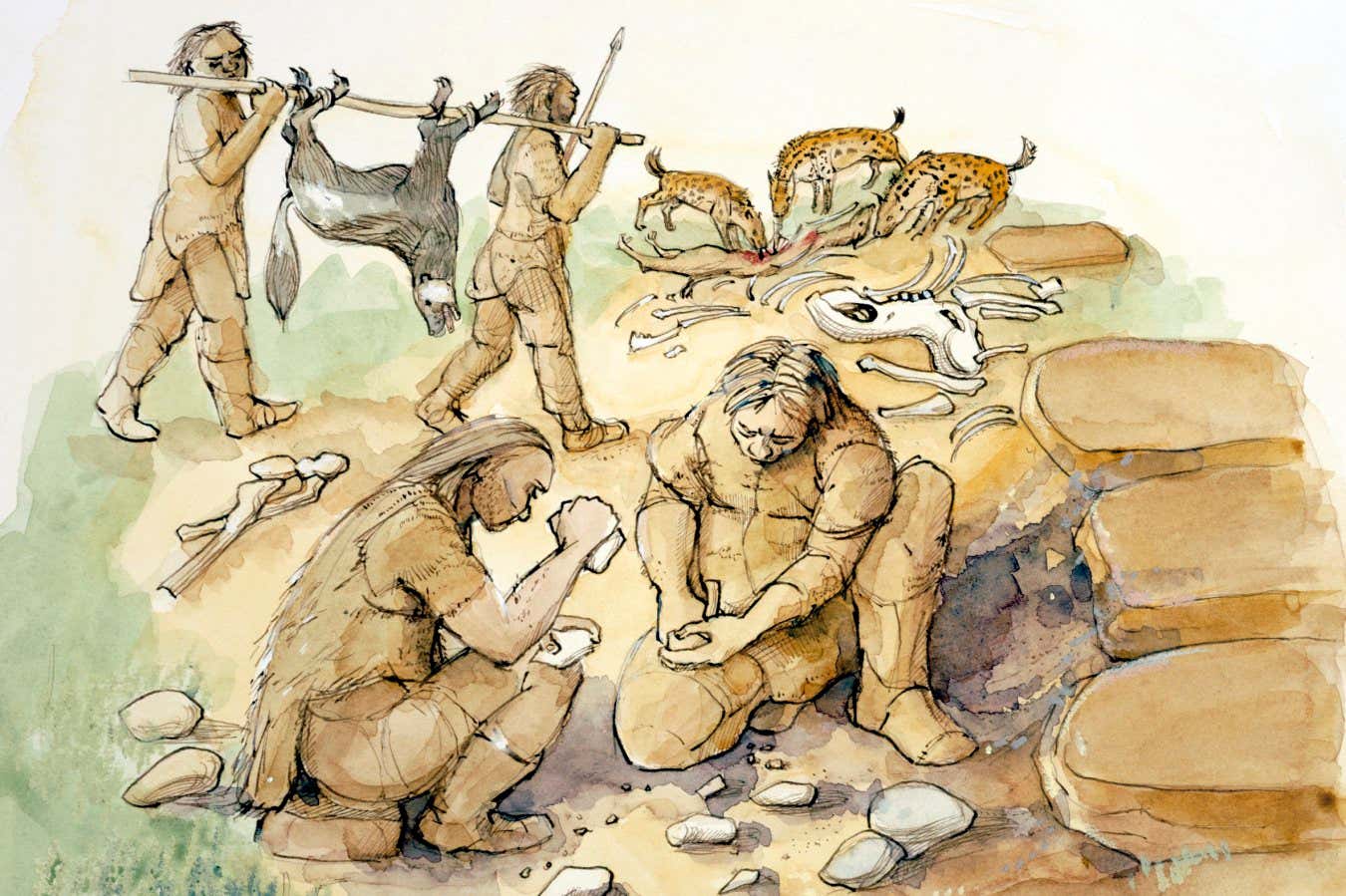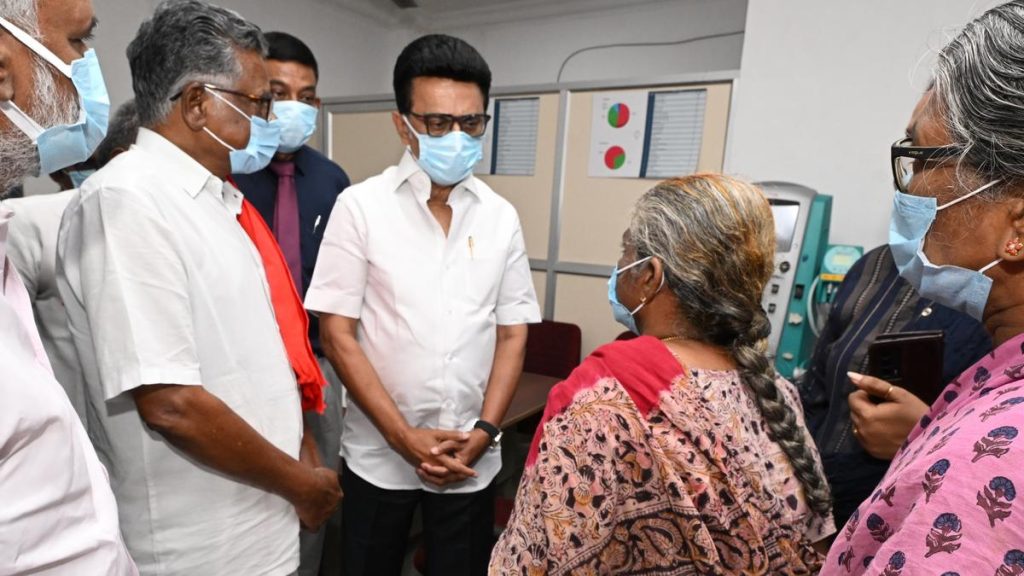Now Reading: Ancient Humans Evolved as Skilled Teachers with Advancing Technology
-
01
Ancient Humans Evolved as Skilled Teachers with Advancing Technology
Ancient Humans Evolved as Skilled Teachers with Advancing Technology

Quick Summary:
- Researchers analyzed over 3 million years of human evolution, highlighting co-evolution between technology and communication.
- Ancient humans improved teaching skills to pass on knowledge about complex tools and behaviors like the use of sharp stones, hafting (attaching stones to sticks for spears), and burials.
- Francesco d’Errico from the University of Bordeaux suggested that cultural traits’ complexity is linked with the mode of cultural transmission.
- Two major shifts in cultural transmission were noted:
– Around 600,000 years ago: humans began overtly teaching using gestures alongside tool innovation like hafting.
– Between 200,000-100,000 years ago: Development of modern language to explain multi-step behaviors such as burials.
- The study tracked 103 traits (from simple tools to complex rituals) through archaeological records and ranked their learning difficulty based on spatial, temporal, and social factors.
- Ivan Colagè at Pontifical University surveyed experts who largely agreed with assessments made by researchers.
- ceri Shipton at University college London described the timing for language development as reasonable despite uncertainties.
Indian Opinion Analysis:
The research underscores human ingenuity’s reliance on not just technological advancements but also effective communication. For India-a nation balancing its rich heritage with rapid modernization-the study highlights a timeless lesson in knowledge transfer. Historically rooted traditions like handicrafts or classical arts thrive due to oral teachings passed down generations. Modern initiatives prioritizing skill development align closely with this evolutionary principle-linking innovation firmly with education models.
India’s vast population could benefit from applying these findings practically-acknowledging how better methods for skill dissemination can accelerate tech-driven growth across sectors while preserving culture-rich practices unique to the country’s identity.




























